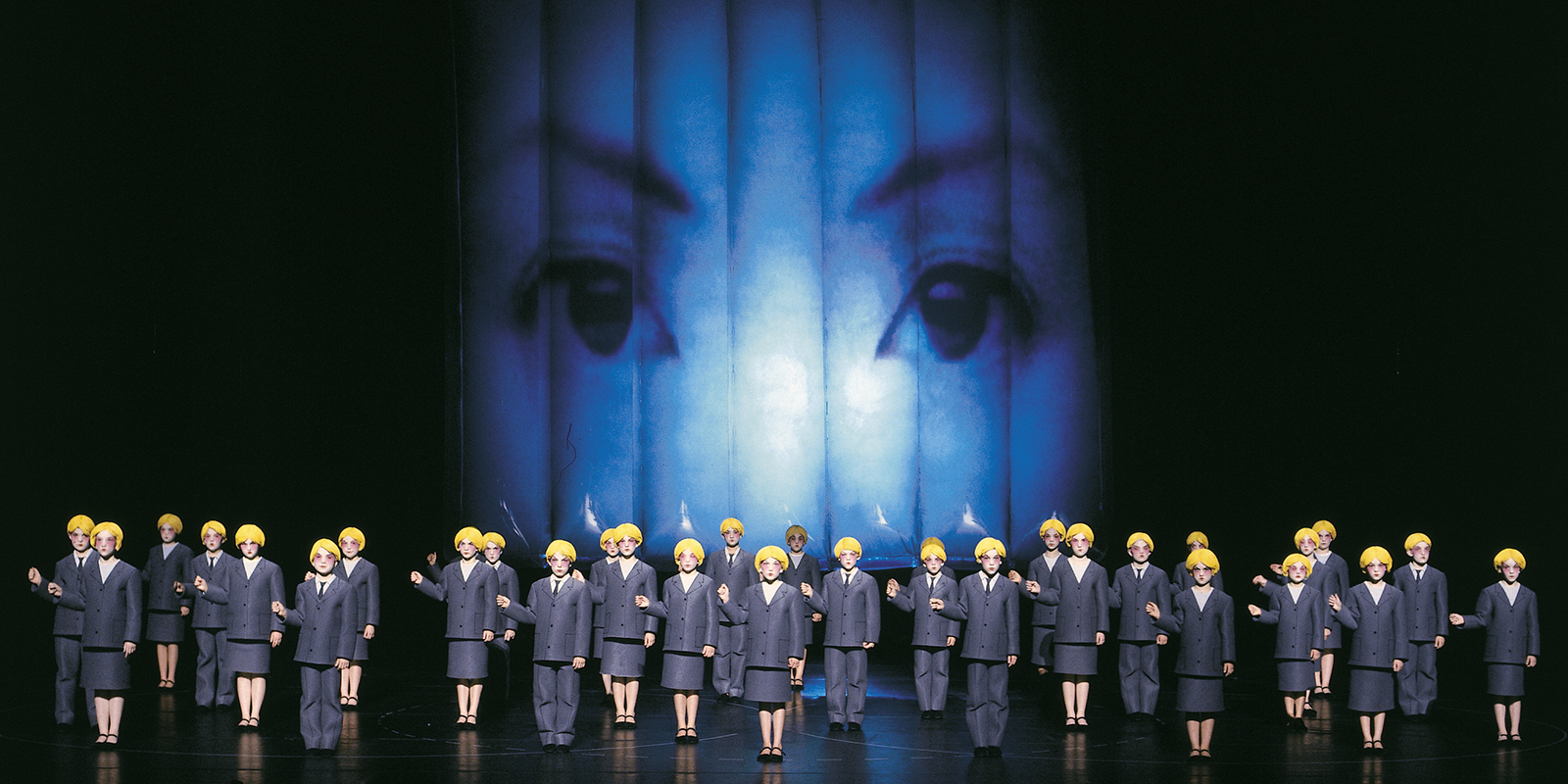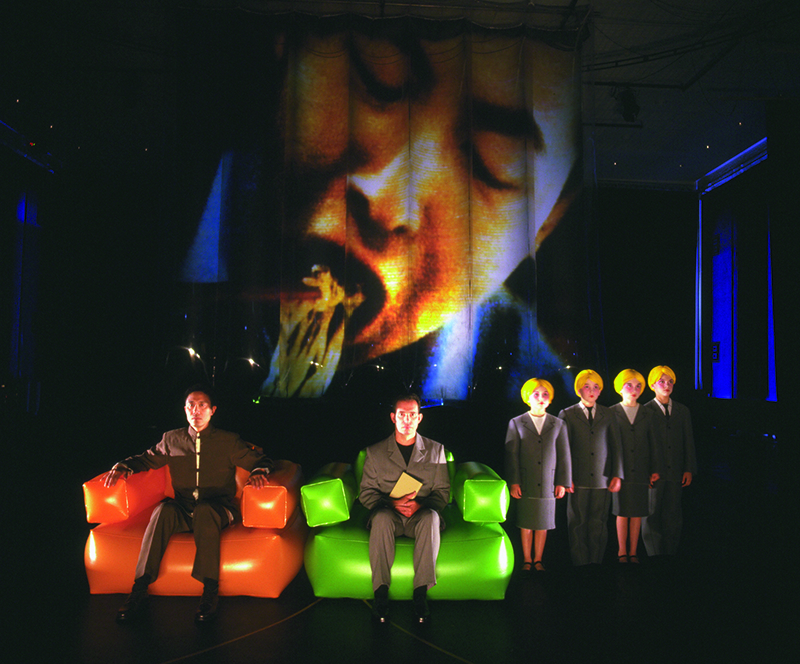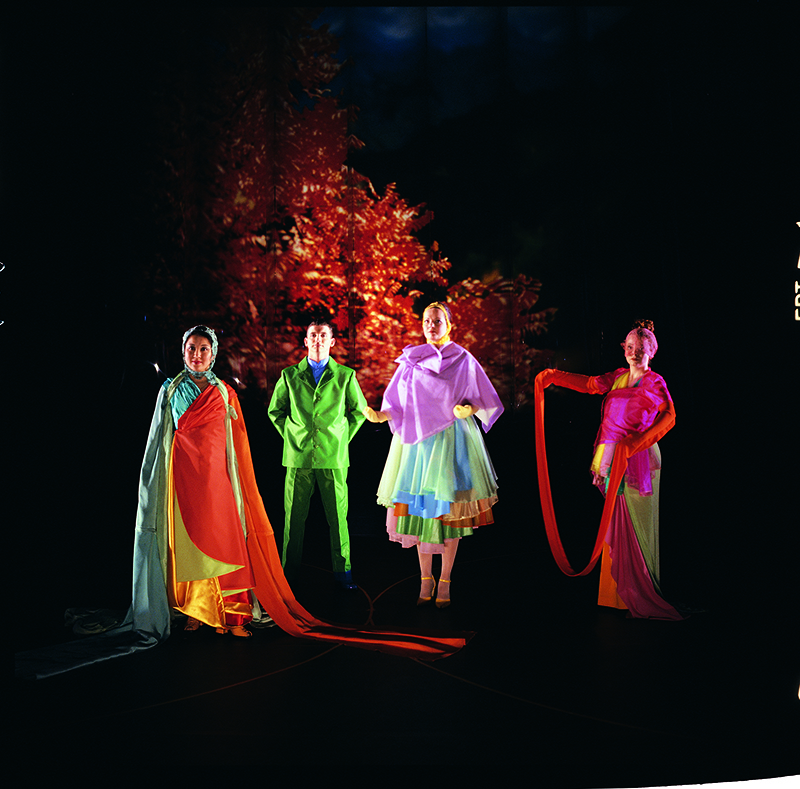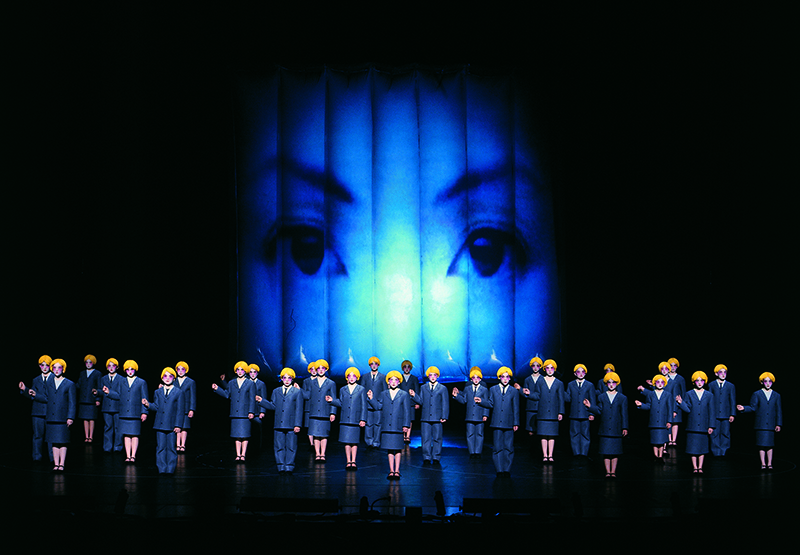Extracts from the performance text by Carsten Jensen (Translated by Barbara Haveland):
1. Scene
It is five and a half years since I was in China. I still remember the broad motorways cutting across Beijing, which only one year earlier had lain empty, but which by then were full of gleaming new cars; I remember the hotels and the swaying building-site cranes, busy providing the city with a new skyline; I remember the Shanghai waterfront, the skyscrapers shooting up everywhere with the speed of a bamboo shoot; I remember the neon lights along Nanjing Dong Lu coming on in the winter twilight; I remember the half-finished suspension bridge over the Huang Po River which seemed to hover between heaven and earth without any visible support; the barges on the river, the pagoda behind the bunkers of coal; I remember the columns of trucks and buses on roads that had once been the preserve of bicycles and ox-carts; I remember the thousands of people waiting each night outside the railway station in Chengdu. I remember an exodus, a migration, a quaking of the continental shelf.
——–
Lie Tse said: “He who journeys without knowing where he is bound has lost his way. That one man goes astray on a journey will be considered too bad for him. But that the whole world has, in fact, gone astray goes unnoticed by everyone.”
——–
2. Scene
Imagine a day when an absolute hush fell over the countryside. No birds sang, no mouse squeaked, no dogs barked, no hens cackled, no oxen bellowed as they pulled the plough, no children played, no infants whimpered as they sought the breast, no mothers hushed, no men looked up at the sky and talked of the weather tomorrow. The buzzing of the flies died away, the spider’s web hung deserted. Not even the wind made itself felt by a rustling in the leaves. There were no leaves on the trees.
——–
I have seen the ravages wreaked by the bones on the young woman’s lovely body, the feverish glaze of protruding eyes, the hair changing colour from black to lacklustre, withered brown, the teeth working loose, the oedema spreading beneath the skin, rendering the blood clear as rheum, the skin that becomes so yielding that even the light touch of a finger leaves a dent that does not disappear. Do you know the taste of shoe soles, of leather, of straw, of grass, of spiders, of human flesh? Do you know that state in which you cease to call yourselves human?
Have you heard this story before? Don’t you believe it? It was us who lived through it. Did we forget to tell you about the great famine in China? We did not know ourselves how many died. Ours was the most densely-populated country in the world, and yet we were so isolated. We thought only our own village was affected, and that some natural disaster or unfortunate error was to blame. But it happened everywhere and it was our own liberators who were behind it.
——–
3. Scene
Li Po said:
… Oh, let a man of spirit venture where he pleases
And never tip his golden cup
empty toward the moon!
Since heaven gave the talent,
let it be employed!
Spin a thousand pieces of silver,
all of them come back!
Cook a sheep, kill a cow,
whet the appetite,
And make me, of three hundred bowls,
one long drink!
——–
4. Scene
Chuang Tse said: “One cannot speak of the ocean to a frog that lives in a well. It knows only its hole. One cannot speak of ice to a butterfly. It knows only its own season.” What seasons do we know? Who among us are frogs and who are butterflies? Let us talk of the sea, our own limitations and the big things in life.
——–
Your civilization is 5,000 years old. I was 40 years old when I travelled through your country. I did not speak Chinese. I looked for you and mostly I encountered myself. You are looking for me. Who will you find?
One night I dreamt that I was Chinese. Then I woke and I was Danish. Now I do not know whether I am a Dane who has dreamt that he is Chinese, or a Chinese who is dreaming that he is a Dane.





